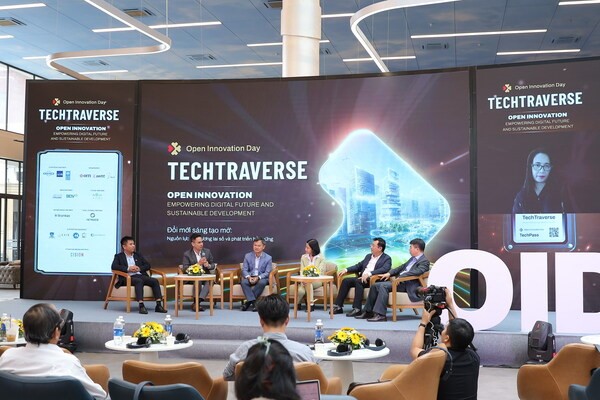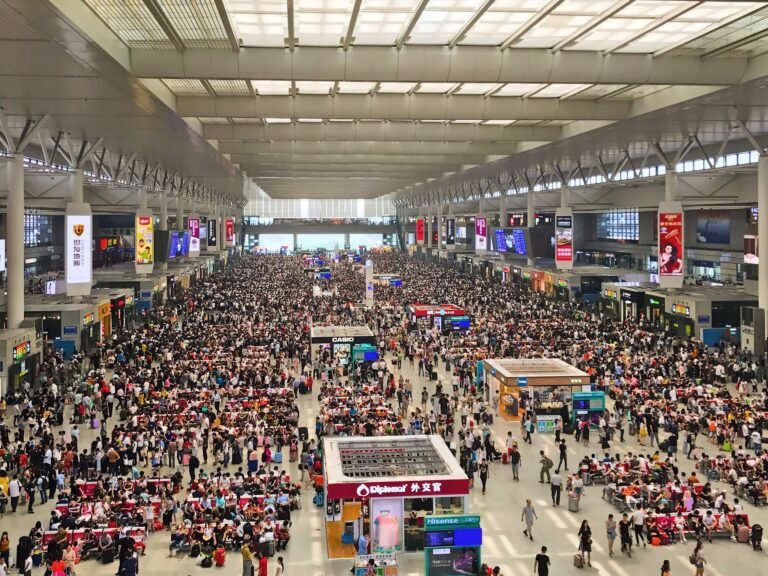Safeguarding its natural wonders, while modernizing its economy, Vietnam is swiftly embracing the digital era to reinforce its commitment to sustainability.
The Vietnam Fintech Market is projected to grow significantly, with the transaction value expected to increase from USD 375 million in 2021 to an impressive USD 18 billion by 2024. This substantial growth reflects the country’s thriving fintech ecosystem, driven by digital banking, digital payments, blockchain, and cryptography.
Vietnam’s fledging fintech industry is on a growth trajectory – which is supported by favorable regulations, government policies, and investment attractiveness in the Asian region – as an untapped market for fintech investors with increasing mobile phone connectivity and internet inroads, as well as a prosperous population.
This is compared to Vietnam’s influx of foreign direct investment (FDI), with $17.9 billion pouring in during 2022 with an increase to $36.6 billion FDI investment. (nb: China 2023 outbound FDI greenfield was USD 140 bil)
The Vietnamese government plays a crucial role in nurturing the growth of the country’s IT industry as a rising tech hub in Southeast Asia, attracting global attention and investment- such as implementing policies that foster sectoral growth of 2024Tax Incentives of 10% for 15 years benefits to IT businesses who investment in hi-tech parks, and Streamlining Bureaucracy to simplify administrative processes for tech-related companies.
The green transformation revolves around four core principles: Green growth, economic sustainability, digital innovation, and scientific advancement. To make this transformation a reality, it calls for changes in how we consume, invest, produce, and conduct business, all supported by policies that encourage sustainable practices. Recognizing the crucial role of digitalization in modernizing its economy and safeguarding its natural wonders, Vietnam is swiftly embracing the digital era to reinforce its commitment to sustainability.
The technology sector in Vietnam also boasts of several competitive advantages, which are critical in understanding the nation’s increasing appeal in the global tech landscape.
Lower Labor Cost: Vietnam offers cost-effective IT solutions, with outsourcing services typically 20-30% cheaper than in Eastern Europe and Latin America. This cost advantage doesn’t come at the expense of quality, as the country’s tech infrastructure rivals that of more established markets.
Young and Skilled Workers: A prodigious output of engineering graduates ensures that Vietnam has the manpower to undertake large, labor-intensive tech projects. The quality of these engineers is recognized globally, with the country ranked highly for the caliber of its developers.
Well-Developed IT Infrastructure: Encouraged by government incentives, local IT businesses have been investing in R&D and infrastructure, allowing them to handle complex projects. Tech parks like Saigon Hi-Tech Park are a testament to Vietnam’s commitment to becoming a premier IT outsourcing hub.
Diverse Technical Skill Sets: Vietnamese IT engineers offer a broad spectrum of technical skills. For instance, Saigon Technology provides expertise ranging from backend development in various programming languages to database management and mobile app development.
Political Stability: The country’s socio-economic environment is one of the most stable in Asia, with no major political conflicts since its independence. This stability is crucial for the uninterrupted progress of IT projects.
Easy Communication: The emphasis on English in education means that Vietnam tech companies have access to a talent pool proficient in English, ensuring clear communication with international clients.
Agile and Scrum Universal Adoption: Vietnamese IT service providers embrace Agile and Scrum methodologies, ensuring efficient project management and the ability to adapt to clients’ evolving needs.
Honesty and Transparency: Vietnamese IT firms are known for their straightforward business practices, offering clients transparency in costs and timelines, which is not always the case in the IT outsourcing industry globally.
Despite abundant opportunities, Vietnam’s IT industry faces several challenges which are common shared hurdles in most burgeoning IT landscapes.
Startups’ Cash Flow and Funding Issues – managing cash flow and securing sufficient funding remain significant challenges, with access to capital directly impacting on their growth and long-term viability.
Intellectual Property Protection -ensuring robust intellectual property (IP) protection is critical for innovation and growth. However, Vietnam encounters difficulties in effectively enforcing IP rights, potentially hindering technological progress and discouraging investment.
Cybersecurity Vulnerabilities – as the IT industry expands, cybersecurity threats become more pronounced. Safeguarding sensitive data, systems, and networks from cyberattacks is an ongoing challenge. Strengthening cybersecurity measures is essential to maintain trust and stability.
Overall IT Infrastructure – while Vietnam has made progress in infrastructure development, there are still gaps in connectivity, reliability, and scalability. Addressing these limitations is crucial for sustained growth and global competitiveness in the tech landscape.
“TECHTRAVERSE 2023” was Vietnam’s first Innovation Open Day on sustainable Technology development, attracting over 100 domestic and international companies sharing valuable resources and collaboration in promoting open innovation and supporting testing and market development for innovative startups.

As an initiative of the Ministry of Science and Technology (MOST), it was co-organised through a collaboration of the National Agency for Technology Entrepreneurship and Commercialization Development (NATEC), Zestif Vietnam (Zestif) The Vietnamese Foreign Ministry’s State Commission for Overseas Vietnamese Affairs (SCOV), The Open Innovation Institute and Technology Entrepreneurship (OITI), SAIGONTEL, Asian Development Bank (ADB) – and was strong support from pioneering Vietnamese corporations such as Agribank and TNTech.
Mr. Pham Hong Quat, Director General of the National Agency for Technology Entrepreneurship & Commercialization (NATEC), under the Ministry of Science and Technology calls for corporations and businesses to cooperate, invest, and partner with innovative startups in Vietnam, bringing their practical needs together to Build a Better Tomorrow.
SOURCE The National Agency for Technology Entrepreneurship and Commercialization Development










